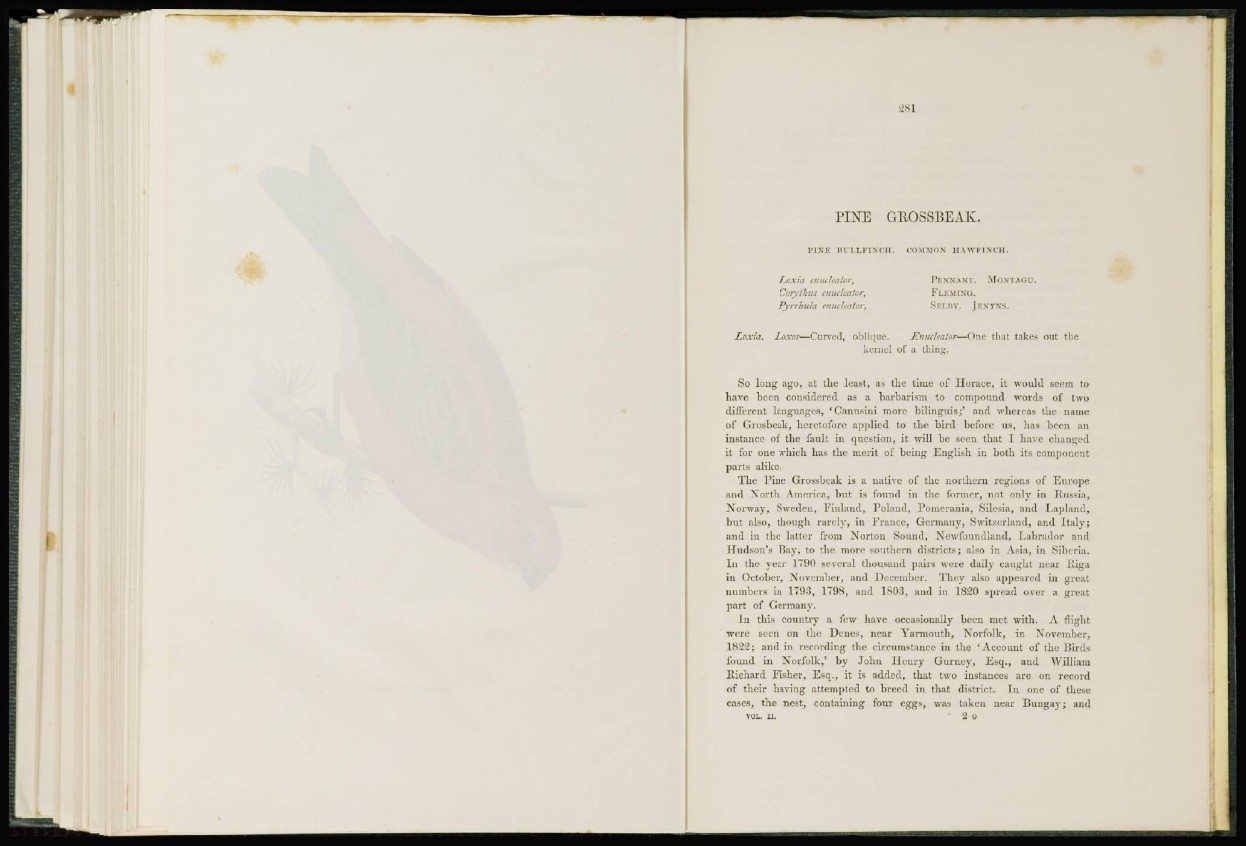
PINE GROSSBEAK.
PINE BULLFINCH. COM MON IIIWFINCH.
Loxia enucieator,
Corytkus enucleate?;
Pyrrhula enucieator.
PENNANT. MONTAGU.
FLEMING.
SELBY. JENTNS.
Loxia. Loxos—Curved, oblique. Enucieator—One that takes out the
kernel of a thing.
So long ago, at the least, as the time of Horace, it would seem to
have been considered as a barbarism to compound words of two
different languages, 'Canusini more bilinguis;' and whereas the name
of Grosbeak, heretofore applied to the bird before us, has been an
instance of the fault in question, it will be seen that I have changed
it for one which has the merit of being English in both its component
parts alike.
The Pine Grossbcak is a native of the northern regions of Europe
and North America, but is found in the former, not only in Russia,
Norway, Sweden, Finland, Poland, Pomerania, Silesia, and Lapland,
but also, though rarely, in France, Germany, Switzerland, and Italy;
and in the latter from Norton Sound, Newfoundland, Labrador and
Hudson's Ray, to the more southern districts; also in Asia, in Siberia.
In the year 1790 several thousand pairs were daily caught near Riga
in October, November, and December. They also appeared in great
numbers in 1793, 1798, and 1803, and in 1820 spread over a great
part of Germany.
In this country a few have occasionally been met with. A flight
were seen on the Denes, near Yarmouth, Norfolk, in November,
1822; and in recording the circumstance in the 'Account of the Birds
found in Norfolk,' by John Henry Gumey, Esq., and William
Richard Fisher, Esq., it is added, that two instances are on record
of their having attempted to breed in that district. In one of these
cases, the nest, containing four eggs, was taken near Bungay; and
VOL. II. ' 2 o